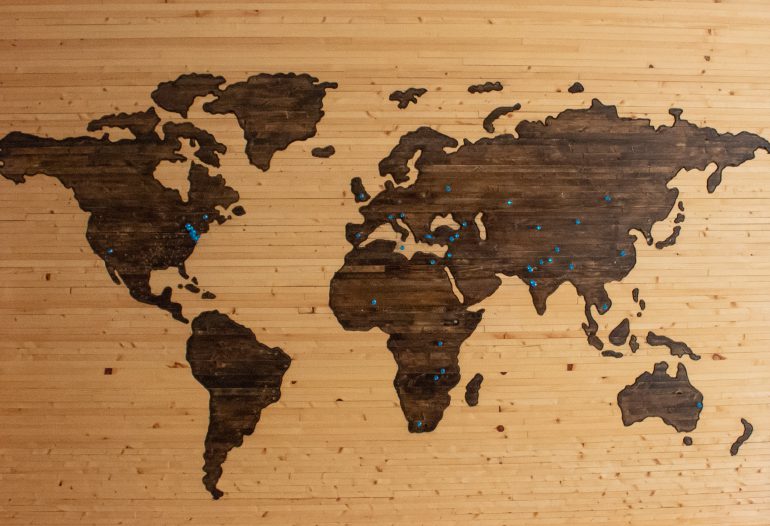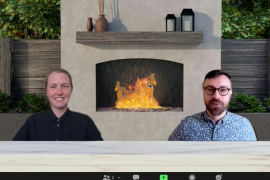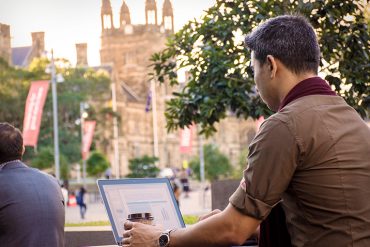Dr Shawna Tang joined the Department of Gender and Cultural Studies in 2018 as Lecturer in Gender Studies. She has held postdoctoral fellowships at the Sexualities and Genders Research group (SaGR) at Western Sydney University, and the Asia Research Institute (ARI) at the National University of Singapore (NUS). Previously, she was Lecturer at the Sociology department, NUS and Deputy Editor of International Sociology. She currently serves on the Editorial Board of the Journal of Sociology and the Editorial Collective of the Queer Asia Series, Hong Kong University Press.
I invited Shawna to reflect on what ‘teaching through Covid-19’ has looked like for her and her students. Generously, (despite end of Semester time constraints: deadlines, teaching and related meetings etc.), Shawna provided the following piece that highlights the benefit of synchronising teaching, creating a ‘caring curriculum’ that collectively engages students from around the world in learning and achievement despite the context of uncertainty.
If you could go back in time three months from now, what advice would you give yourself?
Three months ago, I would not have anticipated that the new unit I had spent the last year dreaming up with Associate Professor Tess Lea would literally change overnight. GCST3637 Cultural Politics of Difference was designed to be a 3-hour weekly workshop. In the unit, we invite Gender and Cultural Studies students to imagine and build their own political projects through Indigenous, decolonial, critical race and queer feminist frameworks. Most of the students enrolled in this unit are those already invested in various community causes, such as BIPoc (Black, Indigenous People-of-colour) movements, anti-racism, disability rights, street protests in Hong Kong, queer of colour activism, to name a few.
Students attend this class to workshop their individual political investments as well as build a political life together, one that is attuned to cultural differences. We were into Week 3, typically a magical time when students start to cohere as a community in the classes I teach. Then the pandemic hit, and we could no longer meet face to face.
So, the second thing I hadn’t anticipated was teaching to a class that was, quite literally, all over the place. My international students from the US, UK, Hong Kong, France, South Korea, Vietnam, Germany and China were all returning home, and these students were in various stages of travel: packing to leave, in limbo at the airport because their flights had been cancelled, making the long commute home that was lengthened by quarantine measures; and others who didn’t have to or didn’t want to travel had to move out of their rentals because their flat mates had left and they could no longer afford the rent.
At the height of this, there were conversations at faculty level about pausing teaching for the transition to online learning. While most staff felt ready because we were well-supported by university infrastructure, the sense I got from students was that they needed the space and time to recalibrate, especially those who were suddenly uprooting from Sydney. Instead, their classes continued apace.
This led me to a third thing I hadn’t anticipated: adapting to a ‘live’ curriculum. I radically slowed down the unit to give students time to adjust. In the initial weeks, students watched a documentary, listened to a podcast, and did quiet reading and reflection. All activities would be asynchronous; students could attend to assignment tasks at their own pace; each would be small and manageable, weighted at 10% so that even if they were unable to get to some tasks, their overall grade would not be too affected.
I also re-wrote the unit syllabus, synchronising it to the moment. Instead of workshopping different political projects in which they would have to select and design for themselves, I relieved them of the burden and chose the project for them: we would focus on COVID-19 as a shared political project. We drew on the unit material, as well as our personal and ethical investments, to respond intellectually and politically to the crisis; we would create an online archive of the moment from our different social locations. Feedback from students suggest that they felt supported, relieved and excited to have an opportunity to work through the crisis as a collective project.
Can you give a teaching tip to a colleague who is looking to implement something similar?
Just a really basic one: create a caring curriculum that attends to the moment. By this, I don’t just mean creating content that addresses the crisis; not every unit lends itself to the endeavour. A caring curriculum, I think, also attends to the ambient affects that shape student learning in this present time. As a class, we address the uncertainty, the restlessness and the loss we feel from the rupture of campus life versus our well-conditioned desires to be productive, to perform and to post a perfectly written response! Yet we have all been unmoored from conventional anchors of university study.
Grappling with this tension made the learning something else. One student said in their reflection: ‘Any time I found myself drifting or worrying about how much time I was ‘wasting’, I was reminded of the fact that the value of this process was also being recognised as a part of our coursework. I thus came to recognise how much value I instinctively place on productivity and making use of time in a way which sees some immediate, tangible result.’ Another student echoed: ‘I relished the chance to …resist traditional marking schema within the academy, embracing slowness and inefficiency, and deriving visceral and tactile pleasure from process rather than final product.’ My final assessments are coming in, and all I can say is I’m blown away by the rigour, depth and meaningfulness of my students’ submissions.
By Laura Hern and Shawna Tang





